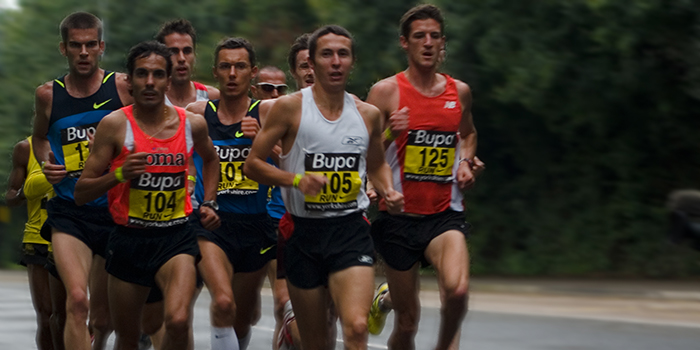
If you see food as a means to better athletic performance, you need to eat for your specific activity. An Olympic pole-vaulter won't excel with the diet of a discus thrower. There's a lot of information on how to get bigger or slim down, but what about learning how to balance weight for performance as an endurance athlete?
Jason Fitzgerald of Life by DailyBurn has a personal best 2:39 marathon time and a coaching certification through USA Track & Field. If you're an endurance athlete, he might be able to help a little with balancing your weight to perform better.
In an article from Yahoo Health, Fitzergald recently gave three specific rules to follow if you're trying to move to a certain weight for better endurance. These tips might seem a little obvious to strength athletes, but for someone competing in endurance, there are bigger (and more sport-important) reasons to manage hunger:
1. Focus on Nutrient-Dense Foods
Certain foods will help you better manage your hunger after runs. A landmark study from the Nutrition Journal found that a nutrient-dense diet lessens the experience of hunger, and thus, is an effective tool not only for improving your health, but for weight loss, too. In other words, a protein-packed quinoa bowl will probably fill you up more than cheese fries.
Naturally, the best foods to eat during your weight loss phase will be high in nutrients, while also being relatively low in calories. Focus on eating foods like vegetables, fruit, legumes and grains for the bulk of your pre-season running diet. Mauney says that healthy fats can also be great for satiety.
...
2. Don’t Drink Your Calories
Water should be everyone’s beverage of choice, for a whole host of reasons. And for the athlete trying to lose weight, one of the biggest perks is that it contains zero calories.
If you’re trying to lose weight, drink water at least 90 percent of the time, and stick to unsweetened tea, coffee or other unsweetened beverages when you want to mix things up.
...
3. Protein, Protein, Protein
Eat protein with every meal, especially at breakfast. Research has confirmed again and again that eating protein increases your feelings of satiety. Not only will you feel fuller, longer, but you’ll probably eat a little less, too. So make protein a priority, especially at breakfast, which will help reduce cravings later in the day.
You can read the entire article here.
Header image via flickr, Sheffield Tiger.








